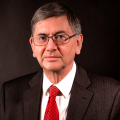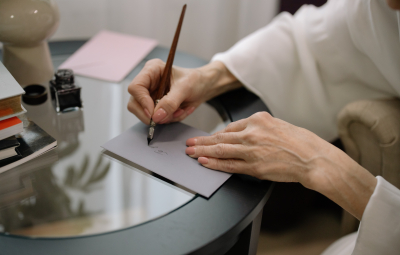The question as to whether to issue a statement on the invasion of Ukraine, and if so what it should say, has been the most challenging issue to face me in my Presidency to date.
There is no doubting the abhorrence members will feel at military aggression and its impact on civilians. We will all have our individual views, and many of us will have ways of expressing these to our elected representatives. This is quite different from the ISI taking a view. We are an international organisation, that is non-political, and as far as I know we have not previously taken a view in an international conflict. And of course there have been so many of these in recent decades.
Our independence from political activities is important for us. It is a stance we have maintained for 140 years. Our statutes require us to facilitate collaboration among our diverse membership. Our independence enables us to support our members in all countries of the world and to organise and support conferences and workshops worldwide.
In such circumstances it is always good to seek advice. My six predecessors as President were consulted, and asked whether there had been anything in their experience to compare with the situation in Ukraine. No-one had been able to recall a similar situation.
We also convened a special meeting of ISI Council to discuss the situation. Clearly there were different views, but there was a consensus that a statement should be made. This was based on the unique issues that many saw around this conflict, with practically universal condemnation, not only politically, but also by sports, cultural and scientific organisations. See for example the statement from the International Science Council. Their webpage includes statements from other scientific organisations.
Having decided to make a statement, Council were keen that it should not condemn either side, but should simply condemn the aggression, and put it in the context of all aggressions. We needed to express concern and solidarity with colleagues in Ukraine; but also keep lines of communication open with statisticians in Russia, recognising that statisticians are not responsible for the actions of their governments, and should not be penalised for them. The statement focuses especially on the impact on statistical work and statisticians.
We agreed to two temporary actions: not organising or supporting events in Russia and putting the Central Eurasia Outreach Committee on hold. Both of these will be reviewed in a few weeks’ time when the situation is clearer. The fact is that travel to Russia will be difficult for many of our members, and many will not support such events, which would make them unviable. We feel that the Outreach Committee has great potential in the region, but that these activities would be difficult at present and should be paused for the time being.
Reaction to the statement from ISI members has been mixed. We have had a number of messages of support, recognising that this would have been a difficult decision. Some members have not been happy, some thinking the statement too weak; others too strong. I have especially valued those who have given views from the point of view of the ISI – an independent statistical association dedicated to international contact and networking between professional statisticians.
So where do we go from here? Well, we will review the situation in May. Conflict cannot continue for ever and by then some sort of solution should emerge. There will be an enormous need for reconstruction in Ukraine, and I hope ISI can help here. If we do we will need the help of our members. Ada and I will be attending next month’s IAOS conference in Krakow, Poland, where I am sure we will have some discussions on the best way to proceed. So look out for updates on this.
Steve
Photo by Tina Hartung on Unsplash





